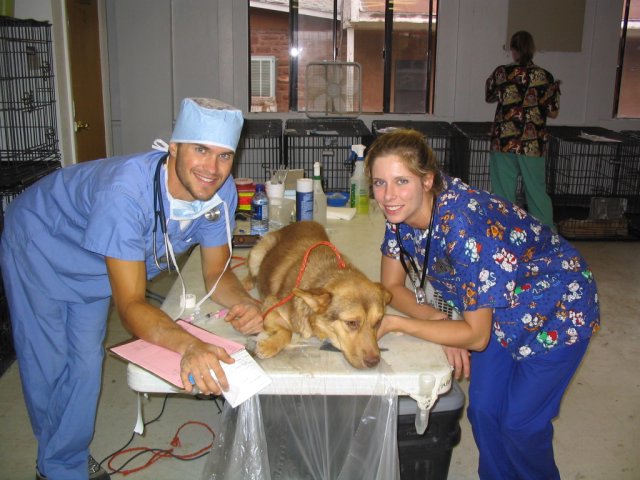The friendship between man and animals has existed since creation. However, the usage of the word ‘pet’ to describe domesticated animals kept as favorites dated back to the 1530s. This relationship is a mutualistic one, in the sense that the duo benefits from each other.
Man, as a higher animal, has a responsibility to take proper care of all animals especially pets as per God’s design. To this end, the health of pets become a major concern to man just as his health, especially pet lovers. Most people have one or more animals as pets in their homes. Despite their usefulness, education on animal health in the country has received little attention.
In discovering the importance of a pet in our homes, The Vaultz News engages a Veterinary Doctor, Dr. William Berko Asamoah, a member of the Veterinary Medical Association of Ghana. He provides some education on what pets are, their usefulness to man as well as some dangers pets can pose to human life.
What is a pet? And why do I need to keep a pet?
From the layman’s perspective, Dr. Asamoah describes a pet as an animal that is kept for companionship other than for food purposes, security reasons, and laboratory research. He explains that the classification as to what constitutes a pet is mainly dependent on the purpose for which such an animal is kept.
He points out a lot of animals domesticated as pets such as a monkeys, lions among others. For dogs kept mainly for companionship, he explains that the security benefits associated with it come in as secondary.
“I wouldn’t classify dogs that security agencies keep for security purposes as pets. However, when the animal is kept mainly for companionship purposes, whether cat or dog, then that animal can be classified as a pet. So, the basic purpose for keeping animals as a pet is for companionship.”
Dr. Asamoah explains that pets are very important in our homes as they play significant roles. They provide a wide range of benefits to their owners. He outlines some of the benefits that come with keeping an animal as a companion. He reveals that “in our world, pets are very important. Naturally, humans are created for bonding and pets provide that kind of companionship. The level of companionship that pets provide is uncountable. Other benefits of keeping pets include therapeutic benefits, social benefits, emotional benefits among others. Therefore, the benefits of keeping pets cannot be underestimated”.
Understanding the Therapeutic benefits in keeping pets
Pets keeping helps the body secret hormones such as dopamine which calms the body down and helps reduce depression levels. This, Dr. Asamoah reveals, has been backed by numerous studies. He also reveals that in some jurisdictions, pets have been trained to take care of humans. They detect medical mishaps in humans.

The dangers of Pets to their owners
Despite the numerous benefits that come along with keeping animals as pets, these animals can also pose some risks to humans if proper care is not taken. Dr. Asamoah notes that there is a likelihood of the transmission of zoonotic disease (e.g. rabies). He explains that this is possible if the immunization status of the animal is not up to date.
He reveals that with cats, there is toxoplasmosis which causes a lot of health implications in pregnant women. However, he indicates that some of these risks can be minimized when the pet owner is health conscious.
“These risks can be controlled or prevented. It depends on the alertness or negligence of the pet owner. As I said earlier, there are some health risks associated with keeping pets. There are also several measures called biosecurity measures that can be put in place as a check against these health implications
“ In your quest to control the transmission of certain zoonotic infections, you have to ensure some biosecurity measures. Particularly, if your pet is a stray animal. And in this period where there is the risk of getting infected from animals, you have to ensure that these biosecurity measures are in place.”

Some preventive measures
He advises that pet owners will have to keep some distance from their animal to avoid any risks if the animal is a stray one. Also, he recommends that pet owners must keep the abode of the animal clean and hygienic. Regular disinfection is necessary.
“One basic precaution is also the vaccination status of the pet. You have to make sure the vaccination status of the pet, particularly cats and dogs, is up to date. If possible, get a veterinarian who checks on the pet from time to time”.
Furthermore, Dr. Asamoah states that the benefits associated with keeping pets outweigh the health implications, especially where the health implications can be put to check with biosecurity measures. There are several vaccines for dogs and cats which depend on the maturity of the pet as he reveals. This includes a Cocktail Vaccine– DHLPP. He advises that puppies must be vaccinate from six weeks if the maternal immunity status is good. After 16 weeks– the anti-rabies vaccine, routine deworming of puppies (every 2 weeks) is necessary.
Pet Registration and Licensing in Ghana
With regards to Pet Registration and Licensing, Dr. Asamoah notes that there is no legislation on the registration of pets in the country.
“The only legislation I know of is that, when you want to import or export your pet, you need a health certificate and a transport permit. You need a health report of your pet from a veterinarian for submission to the Veterinary Services Directorate for your transport permit.”
Dr. Asamoah, thus, calls for more public education on the roles of the veterinary doctor. He also indicates that the veterinary council normally lacks the necessary funding to discharge its mandate.
“On the more serious note, not many are aware of the roles of the veterinary doctor in Ghana. People have limited knowledge about the work of veterinarians. Most see us as animal doctors. Let’s transform the spectacle with which the public views the Veterinarian. This requires more education.”



















